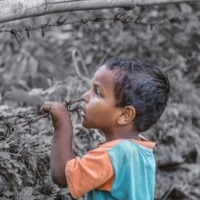Grant funding is a financial resource provided by governments, foundations, corporations, or other organizations to support specific projects or initiatives that align with their mission or objectives. Unlike loans, grants do not require repayment, making them an attractive option for non-profit organizations and NGOs seeking to implement programs that benefit communities or address social issues. The essence of grant funding lies in its ability to empower organizations to pursue innovative solutions without the burden of financial debt.
This funding can be pivotal in launching new initiatives, expanding existing programs, or conducting research that contributes to the greater good. The process of obtaining grant funding typically involves a competitive application process where organizations must demonstrate their capacity to effectively utilize the funds for the intended purpose. This often includes outlining the project’s goals, expected outcomes, and how it aligns with the funder’s priorities.
For many NGOs, securing grant funding is not just about financial support; it also represents an opportunity to gain credibility and visibility within their sector. Successfully funded projects can lead to further opportunities, partnerships, and increased community engagement.
Types of Grant Funding
Project Grants
One of the most common types of grants is project grants, which are awarded for specific projects or programs that have clear objectives and measurable outcomes. These grants are often time-limited and require detailed reporting on progress and results. For instance, a non-profit focused on environmental conservation might apply for a project grant to fund a community tree-planting initiative, detailing how many trees will be planted and the expected impact on local biodiversity.
Operational Grants
Another significant category is operational grants, which provide funding for the general operating expenses of an organization. These grants are crucial for NGOs that need support for their day-to-day activities, such as salaries, utilities, and administrative costs. Operational grants allow organizations to maintain their infrastructure while focusing on their mission. For example, a small NGO working on education might receive an operational grant that enables them to keep their doors open while they develop new educational programs.
Capital Grants
Additionally, there are capital grants designed for specific capital projects, such as building renovations or equipment purchases. These grants are essential for organizations looking to expand their facilities or improve their services. For instance, a health clinic may seek a capital grant to upgrade its medical equipment, thereby enhancing its ability to serve the community effectively.
Eligibility for Grant Funding
Eligibility criteria for grant funding can vary significantly depending on the funder and the type of grant being offered. Generally, funders look for organizations that align with their mission and values. This means that NGOs must carefully review eligibility requirements before applying.
Common criteria include the organization’s legal status (such as being a registered non-profit), geographic location, and the specific focus area of the project (e.g., education, health, environment). In addition to these basic requirements, funders often seek evidence of an organization’s capacity to manage funds effectively. This may include demonstrating a history of successful project implementation, having qualified staff in place, and maintaining sound financial practices.
For example, a foundation may require applicants to provide financial statements or audits to ensure they have the necessary infrastructure to handle grant funds responsibly. Organizations that can showcase their track record and operational capabilities are more likely to be considered eligible for funding. Moreover, some grants may have specific demographic or target audience requirements.
For instance, a grant aimed at improving literacy rates may only be available to organizations working with underserved populations in certain regions. Understanding these nuances is crucial for NGOs as they tailor their proposals to meet the specific expectations of potential funders.
How to Find Grant Opportunities
Finding grant opportunities can be a daunting task for many NGOs, but there are several strategies that can streamline the process. One effective approach is to utilize online databases and platforms dedicated to grant listings. Websites like Grants.gov, Foundation Center, and GrantWatch provide comprehensive listings of available grants across various sectors.
By setting up alerts or regularly checking these platforms, organizations can stay informed about new opportunities that align with their mission. Networking is another powerful tool in identifying grant opportunities. Building relationships with other non-profits, community organizations, and funders can lead to valuable insights about upcoming grants or collaborative opportunities.
Attending conferences, workshops, and local events can facilitate these connections and provide a platform for sharing information about funding sources. For example, an NGO focused on youth development might connect with other organizations at a community summit and learn about a new grant initiative aimed at supporting youth programs. Additionally, subscribing to newsletters from foundations and grant-making organizations can keep NGOs updated on funding opportunities as they arise.
Many funders share information about their priorities and upcoming grant cycles through newsletters or social media channels. By actively engaging with these communications, organizations can position themselves to apply for grants that align with their goals.
How to Write a Grant Proposal
Writing a compelling grant proposal is crucial for securing funding. A well-crafted proposal not only outlines the project but also persuades funders of its importance and feasibility. The first step in writing a successful proposal is to thoroughly understand the funder’s guidelines and requirements.
Each funder may have specific formats or questions they want addressed, so adhering closely to these instructions is essential. The proposal should begin with a clear executive summary that succinctly outlines the project’s purpose, goals, and expected outcomes. Following this summary, it’s important to provide a detailed description of the problem being addressed and how the proposed project will tackle it.
This section should include relevant data or research that supports the need for the project. For instance, if an NGO is seeking funding for a mental health initiative, including statistics on mental health issues in the target community can strengthen the case. Next, the proposal should outline the project’s objectives and activities in detail.
Funders want to see a clear plan of action that includes timelines, responsible parties, and measurable outcomes. A well-defined budget is also critical; it should transparently outline how funds will be allocated across various project components. Finally, including an evaluation plan demonstrates to funders that the organization is committed to assessing the project’s impact and learning from its implementation.
Tips for a Successful Grant Application
To enhance the chances of success in grant applications, NGOs should consider several best practices. First and foremost is clarity; proposals should be written in clear and concise language that avoids jargon or overly technical terms. Funders often review numerous applications, so making it easy for them to understand the project’s significance can set an application apart.
Another important tip is to tell a compelling story. Funders are often motivated by passion and purpose; therefore, weaving personal stories or testimonials into the proposal can create an emotional connection. For example, sharing a story about an individual who has benefited from previous programs can illustrate the potential impact of the proposed project.
Collaboration can also strengthen an application. Partnering with other organizations or stakeholders can demonstrate a broader commitment to addressing the issue at hand and can enhance credibility. Including letters of support from community leaders or other organizations can further bolster an application by showing that there is community backing for the proposed initiative.
Lastly, it’s essential to proofread and edit proposals thoroughly before submission. Errors in grammar or formatting can detract from the professionalism of an application and may lead funders to question an organization’s attention to detail.
Managing Grant Funds
Once an NGO has successfully secured grant funding, effective management of those funds becomes paramount. Proper financial management ensures that resources are used efficiently and in accordance with the grant agreement. This begins with establishing a clear budget that aligns with the proposal submitted to the funder.
Regularly tracking expenses against this budget helps organizations stay accountable and avoid overspending. Implementing robust financial controls is also critical in managing grant funds effectively. This includes maintaining accurate records of all transactions related to the grant and ensuring that there are checks and balances in place for approving expenditures.
For instance, having separate bank accounts for grant funds can help prevent commingling of resources and simplify tracking. Regular communication with funders is another key aspect of managing grant funds responsibly. Many funders appreciate updates on project progress and any challenges encountered along the way.
By maintaining transparency and keeping lines of communication open, NGOs can build trust with funders and potentially pave the way for future funding opportunities.
Reporting and Accountability for Grant Funding
Reporting is an integral part of managing grant funding and involves providing funders with updates on project progress and outcomes as outlined in the grant agreement. Most funders require periodic reports—often quarterly or annually—that detail how funds have been spent and what outcomes have been achieved. These reports should include both quantitative data (such as number of beneficiaries served) and qualitative insights (such as personal stories from participants).
Accountability extends beyond just reporting; it also involves demonstrating how lessons learned from the project will inform future initiatives. Funders appreciate organizations that reflect on their experiences and use feedback to improve their programs continuously. For example, if an NGO identifies challenges faced during implementation, discussing these openly in reports shows a commitment to transparency and growth.
In conclusion, navigating the world of grant funding requires diligence, strategic planning, and effective communication skills. By understanding what grant funding entails, identifying suitable opportunities, crafting compelling proposals, managing funds responsibly, and maintaining accountability through reporting, NGOs can enhance their chances of securing vital resources needed to drive their missions forward. With careful attention to these elements, organizations can not only achieve their immediate goals but also build lasting relationships with funders that support long-term sustainability.









































